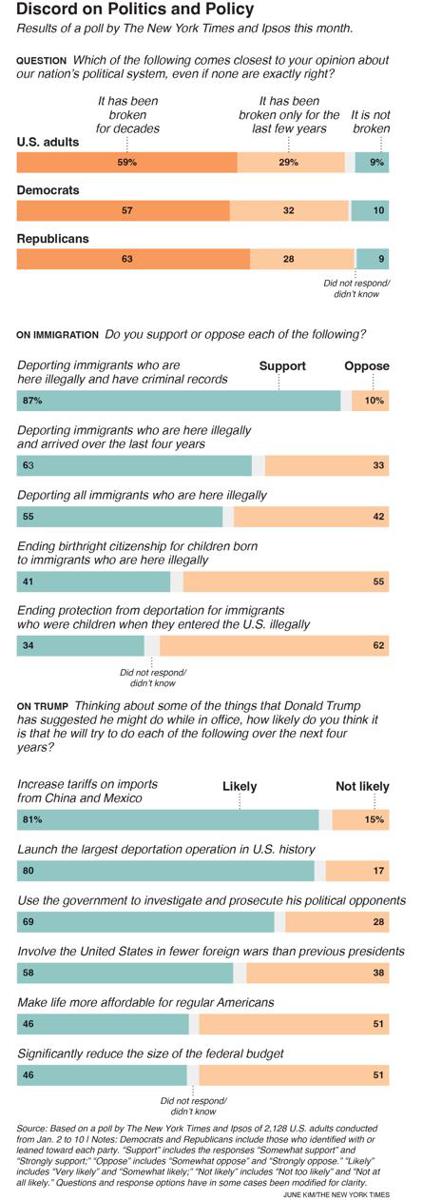JEFFERSON CITY, Mo. — A new year of lawmaking and politicking is underway in US state houses. Governors are acting quickly to outline their agendas. And in many cases, the influence of President-elect Donald Trump already is rippling through states in both symbolic and substantive ways.
Some state officials are trying to tackle concerns that propelled Trump to office such as the economy, affordable living, and immigration. Some are mimicking Trump’s government efficiency panel, though they lack a headlining billionaire like Elon Musk to lead it. And many have waded into the debate about whether US flags should fly high on Inauguration Day to honor the new president or remain low to honor a deceased predecessor.
Those themes were prominent over the past two weeks as state legislatures convened, new governors took the oath of office, and incumbent governors laid out their agendas in formal state of the state addresses.
Just as Trump plans an array of actions on Day 1, some governors were quick to sign various proclamations and declarations.
Within minutes of taking office, Republican Missouri Governor Mike Kehoe issued several anti-crime orders, including moves requiring training for state troopers to aid federal immigration authorities and requiring law enforcement agencies to document the immigration status of people they arrest.
Republican Florida Governor Ron DeSantis announced a special legislative session to begin Jan. 27, a week after Trump is sworn in, to ensure the state can “help the Trump administration enforce our nation’s immigration laws.’’
Republican Tennessee Governor Bill Lee announced a special session to start the same day with an agenda including “public safety measures related to illegal immigration.’’
In West Virginia, new Republican Governor Patrick Morrisey issued numerous orders on his first day, including one ending diversity, equity, and inclusion initiatives at state agencies and institutions. Trump also wants to abolish diversity and inclusion offices.
Another of Morrisey’s orders allows families to receive religious exemptions from school vaccinations. Trump’s nominee for secretary of Health and Human Services, Robert F. Kennedy Jr., a lawyer with no medical or public health degrees, has long questioned some vaccines.
Some Democratic governors are adjusting their approach to Trump in a bid to have a working relationship with his administration and in recognition of his party’s election success. Others are preparing a defense against his potential policies.
Michigan Governor Gretchen Whitmer, a Democrat facing a split legislature and a potential 2028 presidential candidate, said she wants to work with Trump but also has concerns about his proposed tariffs, asserting: “We certainly shouldn’t use them to punish our closest trading partners.’’
In her State of the State address, Democratic New York Governor Kathy Hochul echoed Trump’s focus on inflation and tax cuts by outlining an “affordability’’ plan that would cut income taxes for most people, expand the child tax credit, and send New Yorkers up to $500 as an “inflation refund.’’ She also pledged more police in New York City’s subways, among other crime-fighting initiatives.
Democratic Massachusetts Governor Maura Healey hardened her stance on immigration last week, proposing that at least one member of a family staying in emergency shelters be in the country legally. The state’s shelter system for homeless families has been overwhelmed by a surge in migrants.
